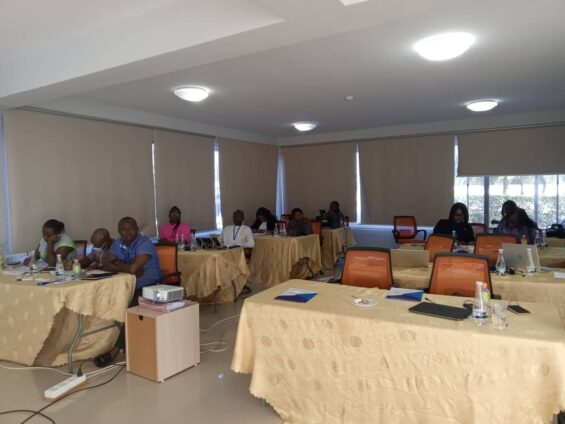A three-day journalism fellowship has kicked off in Accra, empowering journalists to effectively utilise mass and social media to advocate for enhanced financing of epidemic preparedness through improved reporting on public health emergency financing.
The fellowship seeks to enhance public understanding of public health emergency financing through accurate and in-depth media reporting in Ghana.
The fellowship organized by SEND Ghana with funding from the Global Health Advocacy Incubator (GHAI) seeks to equip 12 selected journalists to advocate better financing for epidemic preparedness and response and raise public awareness.
SEND Ghana's Country Director, Harriet Nuamah Agyemang emphasizes the importance of empowering journalists through capacity-building initiatives, recognizing their pivotal role in shaping policies and driving positive change.
By bringing journalists together, SEND Ghana aims to sensitize them to critical issues and enhance their skills, ultimately leveraging their influence to inform and transform policy decisions.
Experts say journalists can effectively promote national interests and support development when guided by objectivity, accuracy, and neutrality.
CHAI's In-Country Coordinator, Stephen Atasige, states the significance of the fellowship, stating that journalists play a vital role in shaping the narrative through their storytelling and article writing
“Journalists keep the momentum. We can’t continue to do business as usual we need to be deliberate,” he said.
Public health emergency financing refers to the financial resources and systems dedicated to preparing for, responding to, and recovering from public health crises, such as infectious disease outbreaks, natural disasters like floods, droughts, biomedical threats among others.
Key aspects of public health emergency financing in Ghana include funding sources, resource allocation, health infrastructure, surveillance and detection, community engagement, research and development.
To address these challenges, Ghana needs sustainable, transparent, and equitable public health emergency financing mechanisms.
Medical practitioner, Dr. Konadu Asiedu says health financing goes beyond infrastructure or workforce. To ensure sustainable healthcare financing, he said, Ghana should aim to meet the Abuja Declaration target of allocating 15% of its annual budget to the health sector.
“This could reduce reliance on donor funding and enhance service delivery.”
Latest Stories
-
Atiwa East MP rewards 41 teachers for hard work and dedication
11 mins -
Ghana Shippers’ Authority celebrates 50 years of resilience and innovation
48 mins -
Be proud of NDC and vote massively – Fifi Kwetey tells Volta Region residents
2 hours -
99% of Ghanaian households can’t afford decent homes – Revised Ghana Housing Profile
2 hours -
Leicester City appoint Van Nistelrooy as new manager
2 hours -
We are committed to restoring the glory days of the Black Stars – GFA
3 hours -
EC says it’s ready for special voting on Monday
3 hours -
Journalists empowered to report on sexual corruption
3 hours -
Ballot paper shortfalls in Volta Region shows EC’s incompetence – Joyce Bawa Mogtari
4 hours -
MPs vote in favour of historic bill to allow assisted dying after emotional debate
4 hours -
Otto Addo accepts responsibility for Black Stars’ poor performance – GFA
4 hours -
Ghana to host Junior Wheelchair Tennis Camp on World Disability Day
4 hours -
I want to build a cohesive and disciplined Black Stars – Otto Addo to GFA
4 hours -
Ballot papers shortfall were discovered by our staff, we have nothing to hide – EC
4 hours -
Nana Kwame Bediako pledges to end healthcare brain drain, create opportunities for nurses
5 hours

